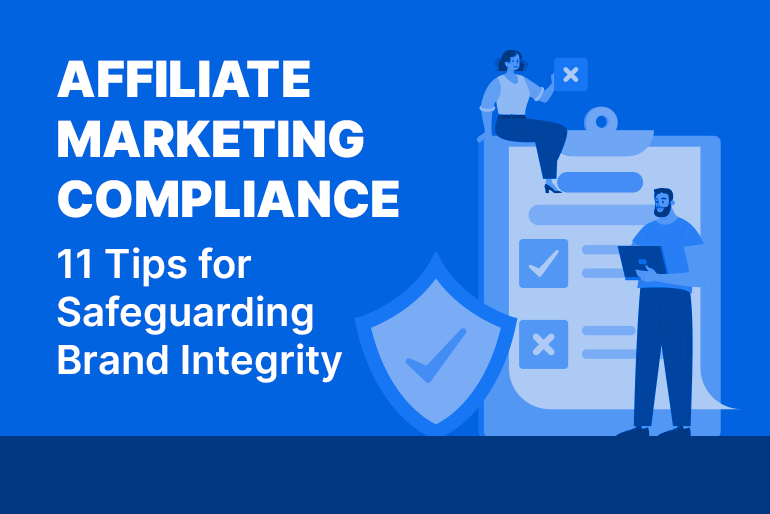In today's bustling digital marketplace, where consumers are bombarded with an array of messages, ensuring that your marketing strategies remain compliant is both an ethical responsibility and a necessity. Balancing engaging, innovative marketing with regulatory adherence can be a tightrope walk.
True marketing genius lies not just in crafting messages that resonate but in doing so ethically, responsibly, and compliantly. The modern consumer is discerning, valuing brands that respect boundaries and prioritize transparency. In this context, marketing compliance isn't merely a legal necessity—it's a brand-building tool, an emblem of trust, and a testament to a brand's commitment to its audience.
Here's an expanded guide offering 11 actionable tips to navigate this journey.
Deep Dive into Audience Understanding
Beyond demographics, delve into the psychographics of your audience. Understand their values, aspirations, and concerns. When you truly grasp the essence of your audience, it becomes easier to tailor marketing messages that are both resonant and compliant, especially in sensitive segments.
Stay Agile with Industry Regulations
In the rapidly evolving world of digital marketing, yesterday's best practices could be today's violations. Regulatory bodies worldwide continually refine and redefine guidelines to ensure consumer protection. Regularly schedule sessions to revisit and familiarize your team with the most current regulations, ensuring compliance is always top-of-mind.
Craft a Comprehensive Compliance Checklist
A granular, exhaustive checklist becomes your guiding light. It should encompass every conceivable facet—from the color and size of disclaimer texts to the nature of claims made in ad copies. While this might seem meticulous, it's a protective shield against inadvertent slips.
Champion Data Privacy
The digital age is synonymous with data proliferation. But with great data comes great responsibility. Brands need to handle user data with the utmost care. Adherence to global standards like GDPR not only keeps you compliant but also bolsters consumer trust—a vital commodity in today's skeptical world.
Prioritize Continuous Learning
Marketing compliance isn’t a one-time task but an ongoing commitment. Monthly workshops, external expert sessions, or even regular email briefings can ensure that your team remains updated. The idea is to weave compliance into the DNA of your marketing operations.
Clarity Over Creativity
While innovative campaigns can create buzz, they should never be at the expense of clear communication. A brand's responsibility is to be both transparent and truthful. Each claim, statement, or promise should be verifiable, ensuring audiences aren't misled.
Harness Rightlander's Power
Digital landscapes are vast, making manual monitoring a Herculean task. This is where tools like Rightlander come into play. Designed to offer granular insights into digital content, it ensures alignment with strict regulatory guidelines. By integrating tools like Rightlander, brands can preemptively identify and rectify compliance gaps, providing an invaluable layer of assurance.
Incorporate Legal Acumen
Marketing and legal teams should work in tandem. A collaborative approach ensures that while marketing teams craft compelling messages, the legal perspective ensures these messages are compliant. Regular brainstorming sessions between the two can lead to both engaging and compliant campaigns.
Emphasize Disclaimers
In many sectors, disclaimers aren't just necessary—they're a cornerstone of ethical marketing. Whether it's financial products with associated risks or health products with potential side effects, clear, upfront, and easily digestible disclaimers ensure consumers make informed decisions.
Implement Routine Compliance Audits
Regularly review your marketing assets, strategies, and communication channels. Internal or external audits can highlight areas of non-compliance, offering brands an opportunity to rectify errors before they escalate. It's always better to be proactive rather than reactive.
Embrace the Digital Edge
Technology isn't just transforming marketing; it's revolutionizing marketing compliance. Advanced AI-driven tools can now scan vast digital landscapes in moments, flagging potential compliance issues. Such technological interventions, when combined with human insights, create a robust compliance framework.

 by Shenaly Amin | 20 Aug 2023
by Shenaly Amin | 20 Aug 2023
 3-min read
3-min read




